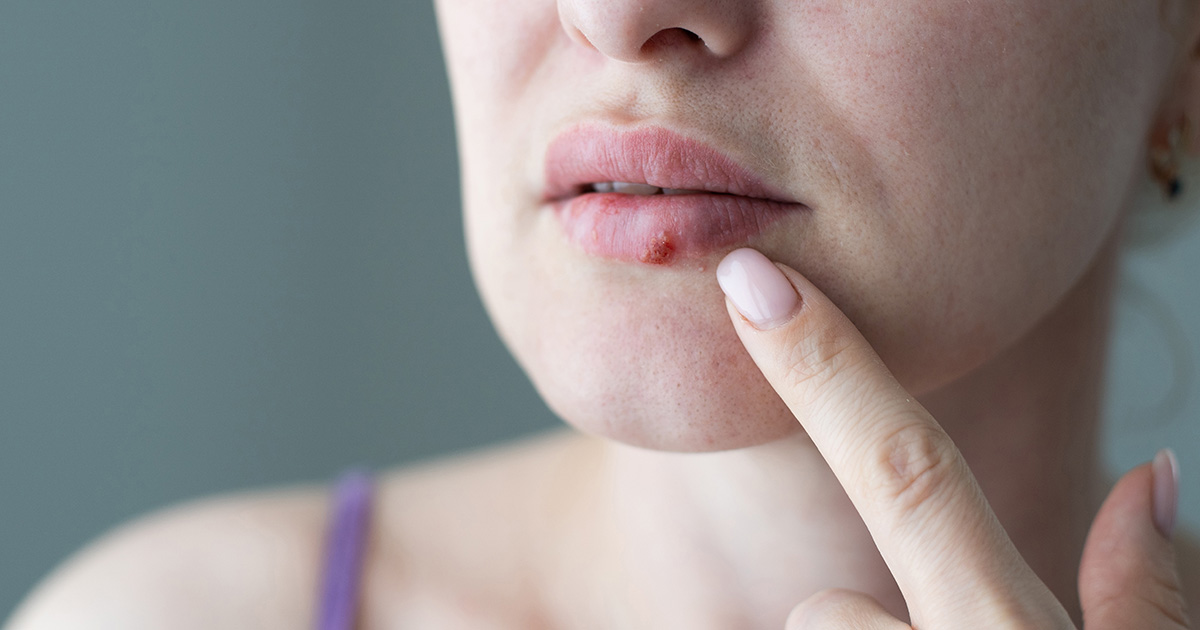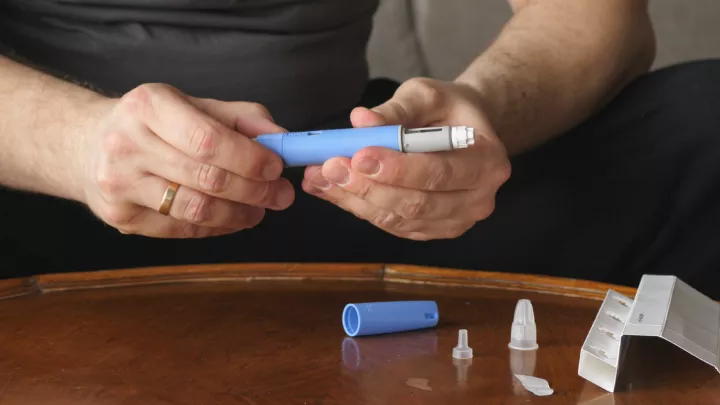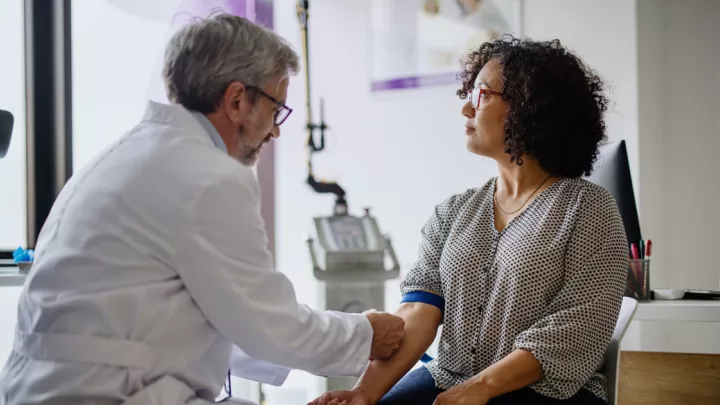Why do cold sores keep coming back?

Cold sores are painful blisters in or around the mouth. These sores are a marker of the herpes simplex virus (HSV), which comes in two forms, HSV-1 and HSV-2. Anyone with either type of HSV is at risk of developing cold sores, but type one is most often responsible.
According to the World Health Organization, about two out of three people under 50 have HSV-1. So, despite whatever stigma HSV has, it’s important to remember this virus is extremely common and nothing to be embarrassed about.
With proper medical attention, it’s relatively easy to effectively treat and limit HSV’s effects, including cold sores.
What are cold sores?
Cold sores are small, fluid-filled blisters, usually around the lips and in the mouth. Because there’s no known cure for HSV, the virus that causes cold sores, it will remain in your body for the rest of your life.
“It’s generally a virus that lays dormant and then can be reactivated at times,” says Zachary Genant, MD, Nebraska Medicine family medicine doctor.
How do you know if you have a cold sore?
There are specific symptoms typically associated with cold sores. “The first time you get a cold sore, it tends to be the worst,” says Dr. Genant. “That’s where you can get a lot more symptoms.”
Symptoms can include:
- A painful blister
- Burning sensation
- A scab forming
- Pain through the mouth and throat area
- Lymph node swelling in the neck
- Feeling feverish
“The first outbreak will typically last a little longer, in the range of 10 to 14 days,” says Dr. Genant. “Subsequent outbreaks are usually a lot less severe, generally lasting around five to seven days.”
Triggers for cold sores
Certain triggers can cause or increase the likelihood of a cold sore outbreak if you already have HSV. These potential triggers include:
- Increased stress
- Ultraviolet rays from the sun
- Hormonal changes or fluctuations
- Fighting a cold or other illness
- Bone marrow transplants, cancer treatments or immunosuppressants
Are cold sores contagious?
Cold sores are highly contagious. Contact is the primary way HSV spreads. You can spread HSV by:
- Sharing the same drink or eating utensils
- Sharing cosmetic products, like lip balm
- Close intimate contact, like kissing or oral sex
HSV can spread before a cold sore appears, too.
“That’s the tricky part with cold sores,” says Dr. Genant. “You’re contagious before you develop the actual cold sore. You’ll experience what’s called prodromal symptoms, where you’ll get a burning or tingling sensation around your mouth. If you’re feeling the beginning of a cold sore, you are contagious at that point.”
What’s the difference between a canker sore and a cold sore?
Cold sores can often be confused with canker sores.
Canker sores, or aphthous ulcers, are small lesions that develop on the soft tissues in your mouth or at the base of your gums. Unlike cold sores, canker sores don’t occur on the surface of your lips and aren’t contagious.
“There are a lot of different things that can cause mouth sores,” says Dr. Genant. “Talk to your doctor about any new sores that won’t go away.”
Treating cold sores
There’s no cure for cold sores, but there are some treatment options.
“We use antivirals to combat the herpes simplex virus,” says Dr. Genant. “They are better now than they have been in the past. Antivirals can treat a cold sore when it pops up, or if taken proactively, can keep cold sores from erupting.”
Through the One Cart Patient desktop portal or the Nebraska Medicine app, you can use an On-Demand Video Visit or submit an E-visit questionnaire to get treatment from home.
“Cold sores often don’t require further testing to diagnose,” says Dr. Genant. “So, just an inspection or even a close-up picture is often enough to diagnose a cold sore given enough clinical context and background.”
Have a cold sore that won’t go away? Learn more about Nebraska Medicine’s telehealth services or download the Nebraska Medicine app to get treatment today.






